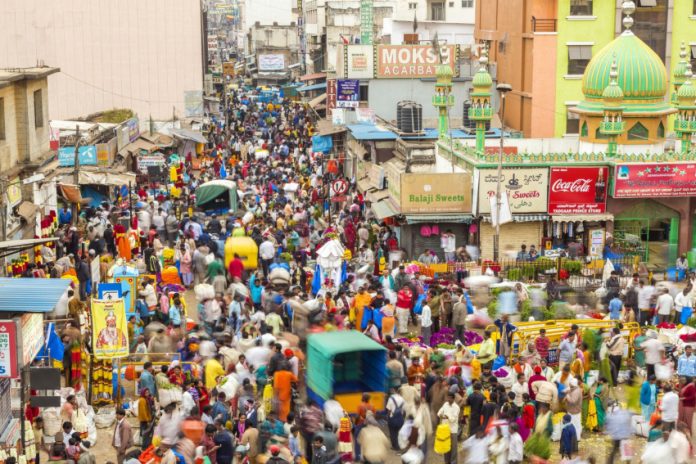In the world’s most populous country, tens of thousands of graduates and postgraduates, many with professional degrees, such as engineering, spend years studying at the tutoring centres that have mushroomed in Indian cities, hoping to qualify for a highly sought-after government job.
The chances are slim. Less than one-half of 1% of the more than 1 million who take the exam each year pass.
Nearly half of India’s 1.4 billion people are younger than 25, making India’s youth population the world’s largest.
India’s economy is growing briskly, about 7% a year, the fastest rate among the world’s major economies. But job opportunities are still too few and the competition too severe – only those graduating from well-known colleges land good jobs.
The unemployment rate for college graduates was 13.4% in 2022-23, according to government data. That is far higher than the overall unemployment rate in the country of 3.2%, according to official estimates.
Economists point out that India’s organized sector, meaning the businesses that are registered with the government, accounts for 8% of the country’s total workforce, with most people finding livelihoods in its vast informal sector.
The government is trying to speed up job generation by wooing global companies hoping to turn India into a manufacturing hub by taking advantage of rising tensions between China and Western countries.
Companies such as Apple have increased production in the country.
But job opportunities are not keeping pace with the enormous demand: India needs to create 70 million jobs over the next decade, according to an estimate by global research firm HSBC.
“Now the organized sector is highly mechanized and automated and increasingly using artificial intelligence,” according to Arun Kumar, a former economics professor with New Delhi’s Jawaharlal Nehru University.
“So, they are actually shedding jobs rather than creating jobs. That is why it is sometimes called jobless growth,” he added.
As India heads into national elections, the dearth of jobs is coming under the spotlight.
After working for a year in a private company, Rahul Singh quit and began preparing for India’s civil services entrance examination hoping to qualify for a government job.
For nearly two years, the 26-year-old technology graduate, who has joined a tutoring center in the Indian capital, New Delhi, has been studying 12 hours a day hoping to pass the fiercely competitive exam.
“I want job security. A government job makes one feel secure,” Singh said. “If I get one, my whole life will be on track, not just mine but also that of my family.”
Singh is not alone.
Like Akash Bhardwaj, 25, who was dissatisfied with the $200 a month salary he earned as an accountant in a private company after graduating with a commerce degree.
He left that job to try for a government one that he believes will offer both a better salary and job security.
“In the private sector, I would not have got a good package,” Bhardwaj said. He has spent three years trying to pass the civil services examination.
Many young people like Bhardwaj and Singh come from rural backgrounds. They get college degrees, hoping to move out of their villages and find a place in the modern economy as their aspirations rise.
Activist Praveen Kashi, who struggled to get a well-paid job when he graduated, has launched a campaign, “One vote, one job.”
He says what voters need is jobs, not the welfare measures political parties often use to woo voters.
“We don’t want guarantees for free water, electricity or rations. If we have work, we can buy our food and pay our bills. We want to earn,” Kashi said.
India’s huge young population is seen as a demographic opportunity that will fuel an economy that Prime Minister Narendra Modi says will become the world’s third-largest in five years. However experts say India may already be losing out on that potential.
“We need to make the youth very productive, give them good quality education so that they can generate jobs, do creative things,” said Kumar the economist.
“Without that, this demographic dividend we can get because of the large youth population will turn into a disaster,” he exclaimed.
That is what the young people studying at the Dhyeya Coaching Institute in New Delhi want to avoid. Most of them say they study for nearly 12 hours a day hoping to make the cut.
“Whatever time it takes, I only want a government job whether it takes one, two or three more years,” said a determined Bhardwaj.
Holding on to that aspiration is not easy. Their families spend thousands of dollars to support them while they study at tuition centers in the big cities.
The pressure on the young people is enormous.
Deepa Panwar, 28, first tried for a career in the armed forces. When that did not pan out, she began preparing for the civil services examination.
“Even if I take one or two days off, I find I have been left behind and struggle to catch up. And when we take exams, despite getting good scores, we don’t qualify. The cut-off keeps rising.”
Creating jobs will be India’s biggest challenge as its working-age population hits a billion over the next decade, experts say. -VOA






















